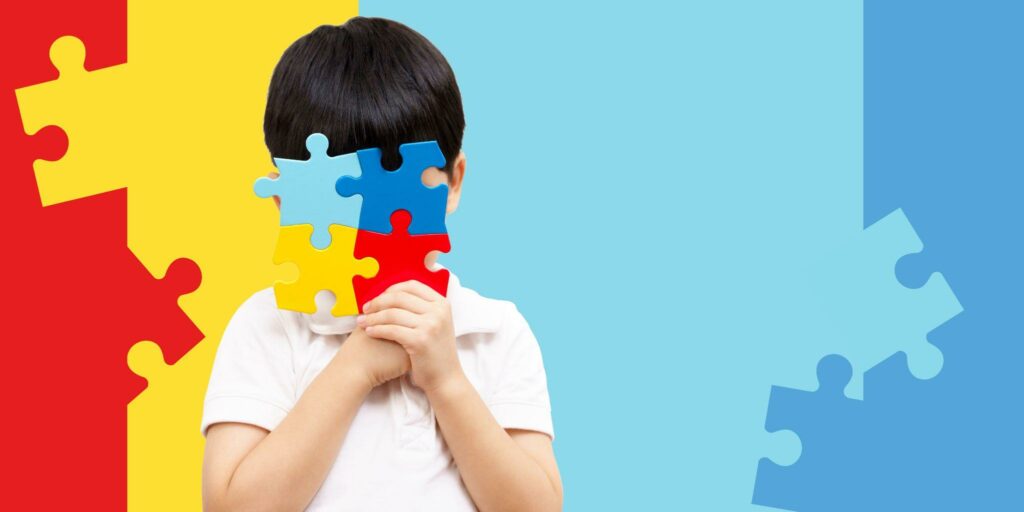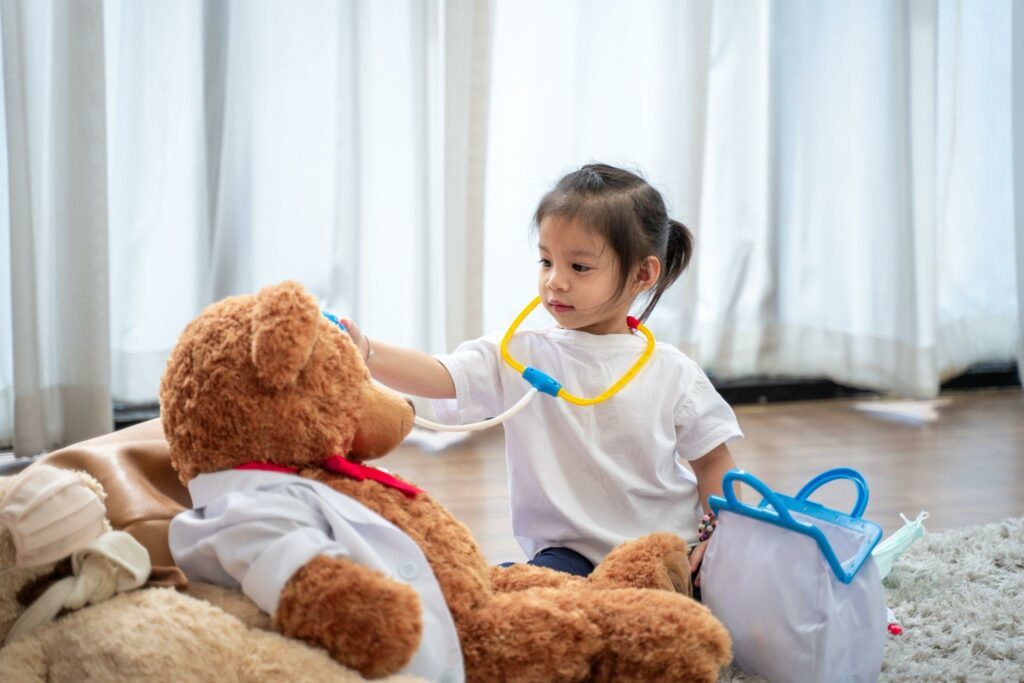


Written by: Hong Kong Speech and Swallowing Therapy Centre
Senior Speech Therapist Eunice Siu
In our daily interactions with others, we not only observe others’ behaviors, but also “explain” and “predict” others’ behaviors. Theory of mind is the ability to infer or substitute other people’s mental states, such as their thoughts, beliefs, desires, and intentions, etc., and to use this ability to explain other people’s thoughts, perceptions, and predict their behaviors. Theory of mind can be subdivided into “emotion recognition”, “beliefs” and “pretend play”.
The developmental period for children’s theory of mind is from approximately 3 to 7 years of age. However, before the age of 3, children need to master the following skills to effectively develop theory of mind skills.
1. noticing and imitating the behavior of people around them
2. recognizing the emotions of others and using words to express them (e.g., happy, sad, angry, surprised)
3. participates in pretend play
4. understands that different people have different desires and preferences
5. understands that people will act to get what they want (e.g. reach for candy)
6. understands the causes and consequences of unsympathetic emotions (e.g. if I hit my brother, my mom will be mad and then she will scold me)

Ways to improve theory of mind are:
1. Use more psychologically relevant words when talking to your child
Using psychologically related words to communicate with children can help children understand their own and others’ psychological conditions more specifically. Examples of psychologically related words are “think,” “pretend,” “know,” “believe,” “feel,” and words related to emotions. Pay attention to what your child is trying to say and then respond. For example, “Ah! You want cake”, “Don’t be afraid! You think I’m gone, but I’m still here,” and “Mommy’s mad at you for hitting your brother. Parents can also explain to their children the psychological situation of others, e.g., “Mei-mei is smiling so much when she receives a birthday present, she should be very excited.
2. Participate in role-playing games with your child
Role-playing games encourage children to put themselves in different situations and characters’ perspectives to draw inferences about their behavior. To begin, children can pretend to be common everyday characters, such as mothers, doctors, teachers, and drivers. Parents should pay attention to the fact that both the words and behaviors in the game should be substituted for the role played. This activity helps children experience a variety of emotions, thoughts and interactions in different social situations, and learn to observe, imitate, anticipate, review and adjust their thoughts and behaviors.

I hope parents can make good use of the opportunity to share and communicate more with their children in daily life, so that they can learn to “look at people’s eyebrows and eyes” (meaning read people’s faces) and become a “mind-reading detective”!
Source:
Hollin, P., Baron-Cohen, S.,& Hadwin,J.(1999). Teaching children with autism tomind-read. West Sussex, England: Wiely Press
Lowry, L.(2015).” Tuning in” to others: How young children develop theory of mind. The Hanen Centre.
Spastics Association of Hong Kong (2005). Connecting: Developing social skills in children with autism. Spastics Association of Hong Kong.